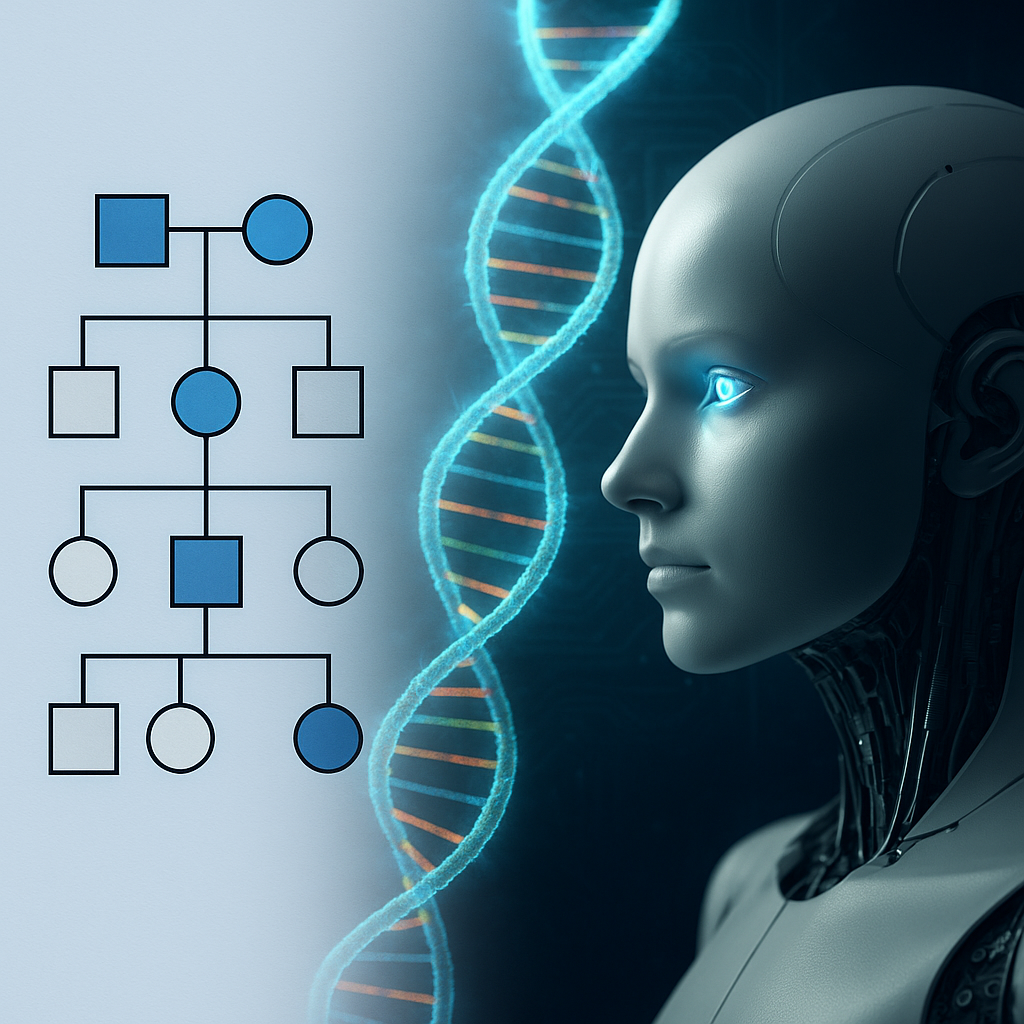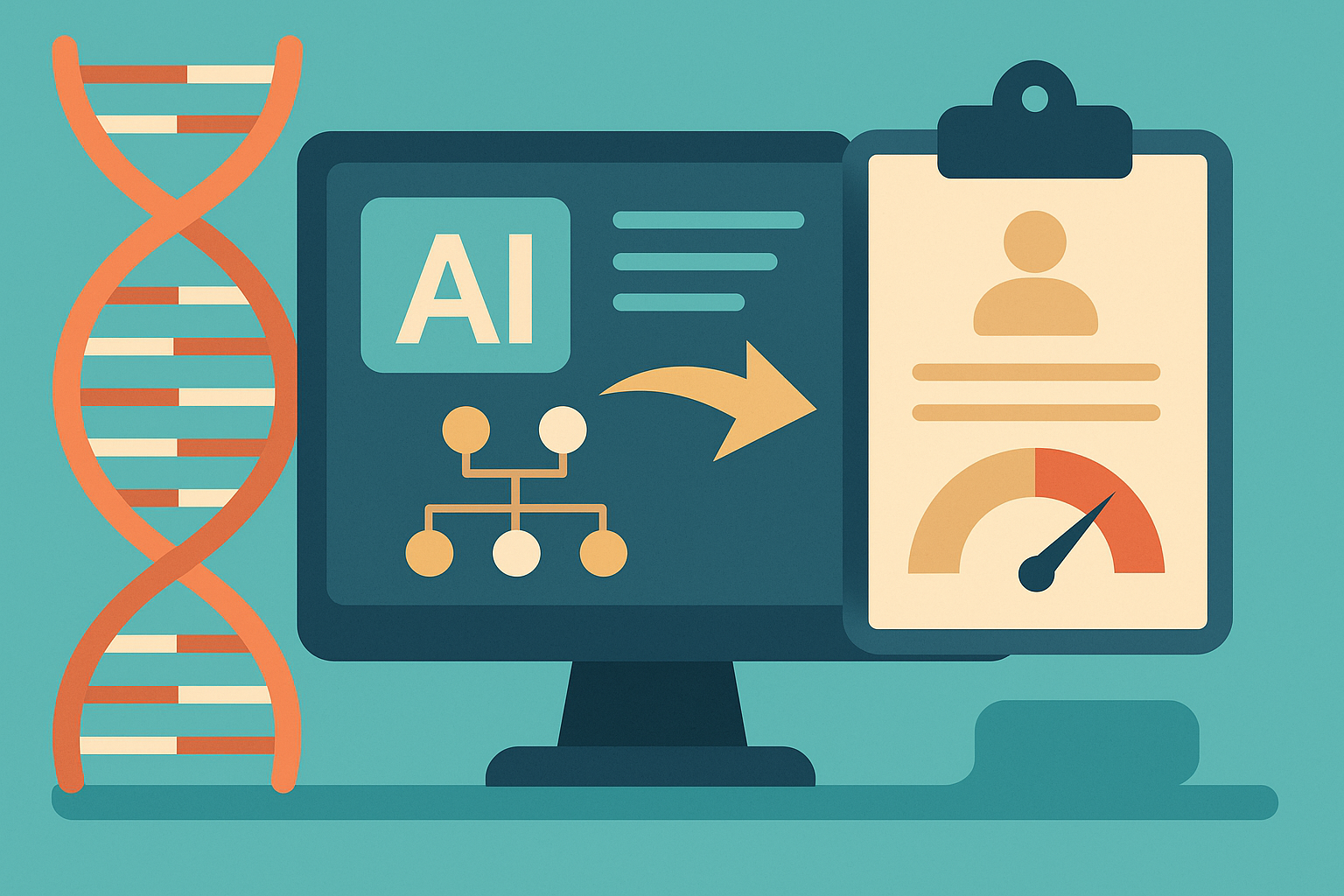Artificial intelligence is aiding healthcare in a new way: a tool designed to predict the risk of developing hereditary diseases. U.S. researchers have developed an AI-powered system that uses genetic data and electronic health records to determine whether rare genetic mutations are likely to cause illness. The goal is to enhance early detection, minimise unnecessary treatments, and provide patients with clearer guidance on their health.
What’s Happening & Why This Matters

Genetic testing often leaves patients and doctors with unanswered questions. A single DNA variant may not reveal much, especially since many mutations are harmless. Even when potential risks are detected, test results can be ambiguous. The new AI model, created by researchers at the Icahn School of Medicine at Mount Sinai in New York, attempts to address uncertainty by combining genetic information with real-world health data, including cholesterol levels and blood counts.
The system was trained on more than one million medical records. It developed models for 10 inherited conditions, including breast cancer and polycystic kidney disease (PKD). Each patient with a rare genetic mutation is assigned a risk score between 0 and 1, which estimates their likelihood of developing disease.
Dr. Ron Do, professor of personalised medicine at Mount Sinai, explained:
“We wanted to move beyond black-and-white answers that often leave patients and providers uncertain about what a genetic test result actually means.”
This approach has already shed light on genetic variants once considered “uncertain.” Some of these mutations were found to have strong links to specific illnesses, allowing physicians to tailor their recommendations more effectively.
The model is not meant to replace clinical judgment, but rather to assist it. Dr. Iain Forrest, the study’s lead author, noted that the risk score can help determine whether patients should receive extra screenings, take preventative measures, or avoid unnecessary anxiety if their variant poses minimal risk.

The findings, published in Science, represent a step toward more precise and personalised medicine. Researchers are now expanding the tool to include more genetic conditions, additional variants, and a wider range of patient backgrounds.
As Do emphasised, to create a future where AI and routine clinical data “work hand in hand to provide more personalised, actionable insights” for families navigating complex genetic information.
TF Summary: What’s Next
AI-driven genetic prediction offers a clearer roadmap for both patients and healthcare providers. By combining DNA results with electronic health data, this system helps identify which genetic variants truly warrant concern. The next phase involves scaling the model to cover more diseases and diverse populations, bringing more accuracy and inclusivity.
If successful, this could become a standard tool in hospitals and clinics, reducing medical uncertainty and empowering patients with knowledge about their genetic risks.
— Text-to-Speech (TTS) provided by gspeech


